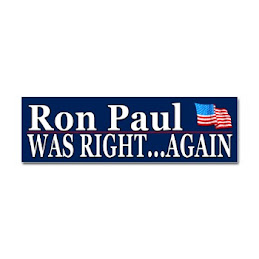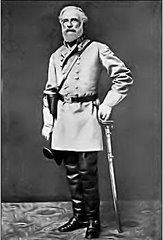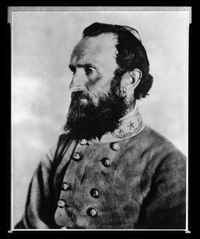I am going to be doing a "Lessons in" series (as perhaps you have started noticing). This lesson is a lesson in economics, relating to the degrading of our dollar due to increasing fiat money, and of a hope of returning to the gold standard. This issue is not dealt with much among politicians or the American people. I hope that this may inform you a bit more about what money is, and perhaps allow you to dig into the issue deeper.
First off, let us ask the questions, "What is economics?" and "What is money?" We will begin with economics. Economics is the practice of trade. An economics choice is one made of giving up something for something seen more valuable. Pretty much anything you do, at some rate or another, is an economics choice. If you help someone for free, you believe that the joy of helping that person outweighs the price it costs to offer the work. If you fly down the interstate real fast, you are willing to take a chance at getting pulled over and receiving a ticket for the benefit of getting to your destination a little quicker (if you do not receive a ticket). By the same token, if you buy an automobile, you are saying that you would rather have the automobile than the cash. The seller of the automobile is saying that they would rather have the cash than the automobile.
This is a pretty simple concept. You give up something for the hopes of getting something better in return. But many Americans just do not get this concept of economics. When studying any issue relating to economics, we should start off with this basic understanding of what economics is.
Now let us ask what money is. Money is the medium of exchange for the trade. The example of flying down the interstate is not directly related to money, unless of course, you do receive the speeding ticket! But what about the automobile? What could you give to the owner of the automobile in order to make the automobile yours? You should give something that the original owner of the automobile would want - more so than the automobile itself. In the very old days, people may trade chickens and cows. If someone had a whole lot of chickens but very little cows, then they may trade with someone who had a lot of cows but not many chickens. The person with many chickens may give five chickens per cow, given that you get more out of a cow, and that you can not cut a cow in fifths! But what if the person with a lot of chickens only wanted to give up one chicken? A trade of chicken for chicken would be useless, and, of course, you can not cut a cow in fifths. So they may trade for something else small like the chicken, or for several things smaller than the chicken. But what if this person's goal was to get a cow? They would eventually have to trade off enough stuff to have enough to trade for the cow. Perhaps this cow-man made a slip of paper saying it could be returned for one chicken, some fraction of a cow, or some other trade. If the chicken person saves up five pieces of paper each worth one-fifth of a cow, then they have saved up enough to buy a cow. What did they save up? In some form or fashion, they saved up money.
This, too, is not a very hard concept. Yet once again, many Americans forget about this basic economic thought. Of course, we do not live in the days of trading chickens and cows with everyone, but we can use the same principle.
Today, nations are established, and nations trade with other nations. There is so much to offer, so many people moving from point A to point B, and not enough trust to take a slip of paper so that you may go back to that same person and claim your claimed possessions. But the same principle can still apply - it is only used as national currency. This is where the government labels something as a form of trade. People are then free to ask however much they want for exchange of this national currency. A good currency is distinguished by certain characteristics: it is valuable in itself, it is scarce, its value will not change dramatically over time, it can not be counterfitted, and it can be divided up into different amounts. Cows can not be divided up. You will not just cut a cow in half. But what would make a good currency based on these basic principle and distinctions?
Precious metals i.e. gold and silver. They are excellent. They are valuable in and of themselves. They are scarce. They can be divided up into different amounts. Precious metals will not change much in value over time. They may some, but not much. Originally, the founders of this country sought to make gold the national currency.
But that didn't last long. When a nation goes into debt, it may be hard to pay the debt off in gold, being that is scarce. Paper money was used. The idea in and of itself, originally, was not bad. It was to issue a slip of paper saying as a promise that it is redeemable for real gold. A given amount of gold, that would not change. Perhaps the paper could be traded until someone turned it in for gold. Perhaps the paper would be issued just to make sure that the gold can be given. America may deal with this nation in a similar way to the way someone tells someone to "Hold that check until Friday to make sure it doesn't bounce."
It would, in theory, be okay to allow this paper into market circulation. The only problem with this is its chance to be counterfitted. But either way, the national currency of today is far from this. If you look at a 1950 $20 bill, it says that you can turn it in for gold (in round-about terms). Not many people would do that, but it does say that you could turn the money in for real gold. $20 bills of today do not say that. A quarter from 1964 is made out of silver. Quarters today are not made from silver. What happened? The currency has been slowly changing.
The American government created more paper bills promising gold, then there was gold available. Not just a little bit more that was sure to come in, but a lot more that would not come in. The gold standard became obsolete. That is how it is today.
What are the effects of this? This fiat money (government issued 'fake' money), is a hidden tax. The newly created money goes first to the politicians and the beureaucrats. Next it goes to the big businessmen. It takes it a long time for it to make its way to the middle class and to the poor people. But it does not take long for the prices to go up. As soon as the money is in circulation, the value of the dollar decreases. The businessmen working for the government raise their prices seeing this inflation. The men working for the big businessmen then raise their prices immediately. This quickly goes down to the small business owner being forced to raise his prices. Finally when the newly created money comes in to the middle class and poor, more money has been created. You pay extra money. You are always just behind the dollar. The government gets to spend their newly created money first. So much for saving up your money! At least in cow and chicken world, you could save up paper promising some amount of real value! The paper money money is easily counterfitted. Nor is not scarce at all. Money might as well grow on trees after all! About the only thing our national currency is good for now is that it can be easily divided into different amounts (e.g. $20 bills, $5 bills, $1 bills, etc.). This currency is also bad in foreign trade, because the nations do not want our money! Our trade with them is hindered. This is also dishonest. When you are in debt, you simply pay it off with a money machine! Of course, dishonesty always catches up with you. This form of currency leads to depression. It is as if you buy everything on a credit card. You get your material, but as soon as the credit card bill comes in - well, your out of luck! This was the case of the Great Depression. The 1920's were great, it seemed. A great economy. New government buildings. It seemed too good to be true - and it was. The Great Depression hit in 1929. The bubble bursted, and the value of teh dollar was too low to be wanted.
So what do I propose? It would be hard to all of a sudden go to using gold for trade. But perhaps we could at least reduce inflation, and make a gold basis for our money. The only Presidential candidate to my knowledge who seems willing to do this is Republican Congressman Ron Paul. I hope this informs you, at least to some degree, of economics and currency. If we continue to buy things on artificial fiat money, then we need all the help from Heaven when the next generation is faced with its bill - a depression.
What do you think?
God bless America
Pray for our Troops
December 11, 2007
Ryan Hampton
Subscribe to:
Post Comments (Atom)










No comments:
Post a Comment